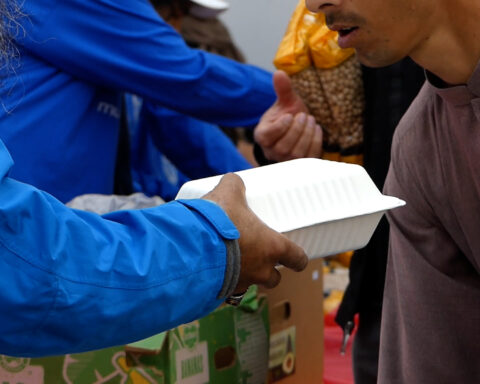There was a time when the vast plurality of new Canadians voted for the Liberal Party of Canada. With the exception of some of those who had escaped the tyranny of the Warsaw Pact, immigrant communities, once established, voted Liberal. Some of the thinking was: “I came into this country thanks to a Liberal government. To them I will remain loyal.”
In recent years there has been an uneasy alliance between new Canadians and a Liberal Party that is driven by a progressive social agenda increasingly at odds with traditional and fundamental religious values. I remember the Saudi Arabian Ambassador to the United Nations standing before the General Assembly in 1967 admonishing America and the West for its promiscuity, its miniskirts, its bikinis and its hot dogs, while lambasting Robert Kennedy as the son of a whisky merchant.
The Conservative Party saw that growing rift and exploited it with a strategy to engage new Canadians. So we saw Prime Minister Stephen Harper visiting the Sikh holy city of Amritsar and the then Minister of Citizenship, Immigration and Multiculturalism Jason Kenney assiduously executing a policy of dialogue with new Canadians – especially South Asians.
Here’s what they did. The Conservatives spoke to the values of hard working new Canadians. Instead of avoiding them, the Conservatives embraced their aspirations by emphasizing lower taxes and continued economic prosperity, or, in other words, security. The Tories repeatedly made the case of, ‘we are the best managers of a thriving economy that benefits your families.’
The Conservatives had a reputation for being a party full of White people who were hard on immigration. So they took steps to ease immigration.
The Conservatives had a reputation for being a party full of White people who were hard on immigration. So they took steps to ease immigration.
Finding Common Ground
Jason Kenney waded into the Ontario’s 905 area – a ring of ridings just outside Toronto – which had been a sea of Liberal red in the 2008 election.
His strategy was to persuade the new Canadians who populated these ridings in large numbers.
Kenney, to his credit, proved himself to be a master of intercultural and interfaith discourse. He gets it. He listens, and he doesn’t patronize.
It became clear that Liberals thought of new Canadian communities as vote pools whose support they took for granted – not as vital groups of interest.
Kenney and company understood that there was more to be done than showing up, eating an ‘exotic’ meal and saying a few words in (insert any language here).
So, they made common cause with new Canadians on their desire to put down roots, start businesses, prosper and preserve their traditional values.
When the Conservatives spoke to the aspirations and beliefs of these communities, it wasn’t simply a cold vote-grabbing calculation. Some of the Conservative Party’s traditional base values are very similar to those of many new Canadians. They had built a new coalition of values.
Kenney and company understood that there was more to be done than showing up, eating an ‘exotic’ meal and saying a few words in (insert any language here).
Speaking of the Conservative base, it has long admired and supported Israel. So it was a calculated move when the Conservative government became one of Israel’s most vocal supporters. That policy allowed the party to make inroads in three of the five Toronto-area ridings with significant Jewish populations.
Adding it all up explains how the Conservatives have made inroads into the new Canadian vote. The 905 area code went blue in 2011, and the Conservatives went from a toehold to a full-scale incursion.
Not Yet Comfortable With Accommodating All
However, like the Liberals before them, the Conservatives also have a cleavage problem. They support the ethical and moral agendas of the world religions.
But, with an eye on their mainstream support, they are not comfortable with the public expressions of those non-Christian religions and communities they have begun to court.
Thus, when the Prime Minister opposes the wearing of niqab in a citizenship ceremony, he knows that plays to a rural, small town and suburban Conservative base that may share the moral and ethical values of new Canadians in terms of faith – but is not comfortable with all manner of accommodation.
They are not comfortable with the public expressions of those non-Christian religions and communities they have begun to court.
In regards to this balancing act, Kenney, now Minister of National Defence and Minister for Multiculturalism, was quoted in an interview with John Geddes in Macleans, March 10, 2015.
He said: “… There are certain important hallmarks of integration. They (new Canadians) don’t believe that multiculturalism should be construed as cultural relativism. They believe that multiculturalism should mean a positive regard for what’s best about people’s cultural and religious antecedents. But it should not mean a completely unquestioning acceptance of every cultural practice, especially those of the most abhorrent nature.”
Kenney’s multicultural approach has worked because he carefully avoids toadying or pandering. New Canadians are continuously less likely to be influenced by tokenism and patronizing gestures. More new Canadians have responded to the Conservatives because they have actually taken the time to understand and reflect on their values and beliefs.
Richard M. Landau has been responsible for adjudicating disputes and enforcing a television network code of ethics in a religious broadcasting setting since 1992. He is a graduate of Carleton University and the University of Ottawa. A leader in interfaith dialogue, Landau has consulted with the U.K. Home Office, and the White House Office of Community- and Faith-Based Initiatives. He works closely with leadership in all of the major world religions. He is author of What the World Needs to Know about Interfaith Dialogue.





